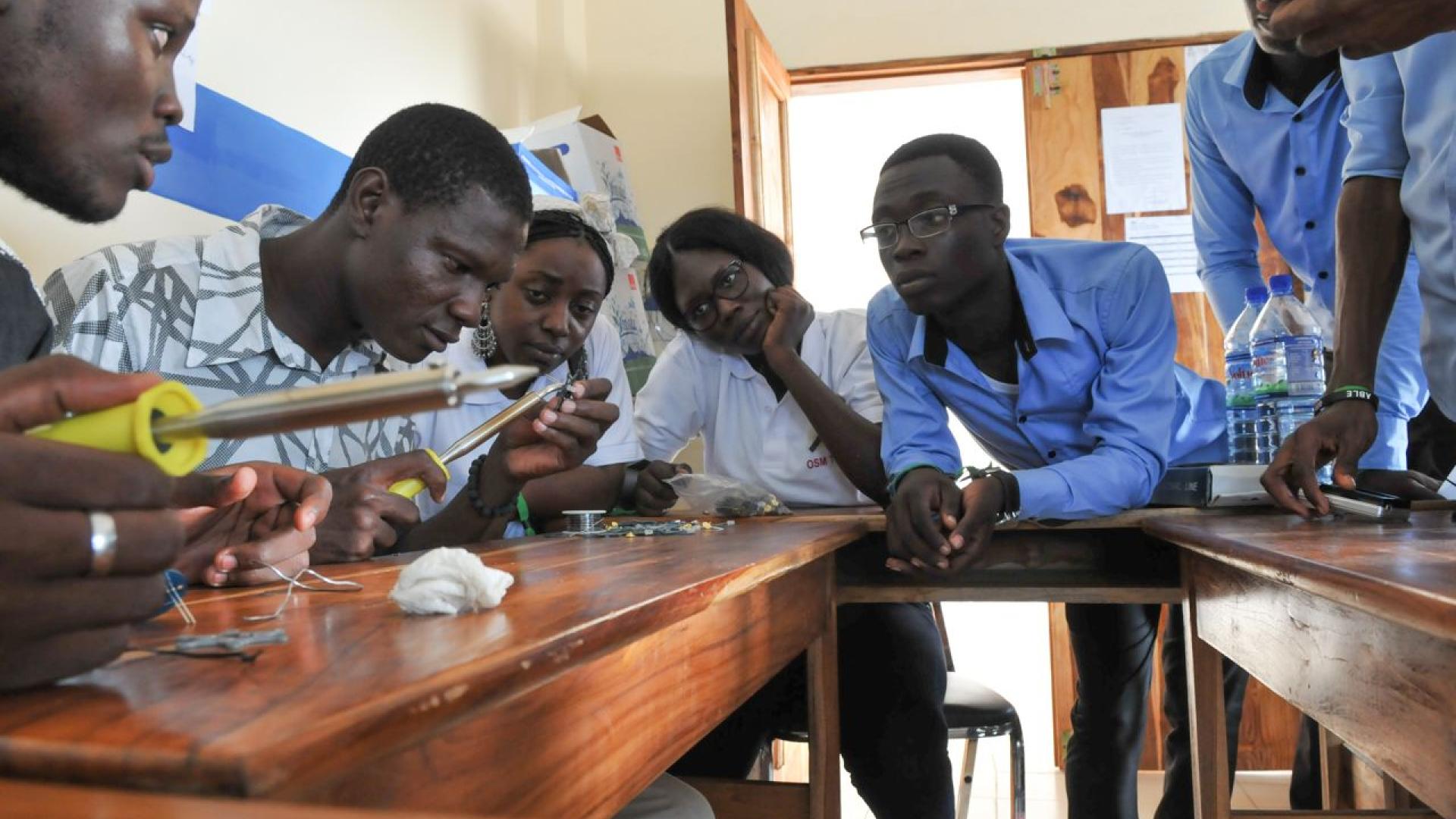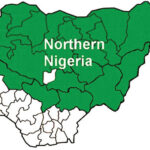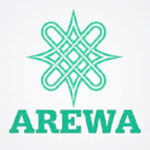The North of Nigeria has always been a region rich in diversity, with a complex tapestry of cultures, languages and traditions. In this dynamic world of the 21st Century, it is imperative that we foster a new generation of productive and innovative youths who can navigate the challenges and opportunities of our time. This is not just a regional concern; it is a national imperative.
When we talk about the North, what exactly do we mean? Is it a geographical location, an ideology, a religious or tribal identity, or a combination of all these factors? The North is a diverse region, and we must recognise this diversity. It is not defined solely by a common language or geography, but by a shared vision and goals.
Example, what do we call a second or a third generation Igbo man who has lived all his life in Mubi, Adamawa State, and speaks fluent Fulfulde? To complicate matters, the furthest he has travelled is Yola, Adamawa State, and Jalingo, Taraba State. Is he a Northerner? Similarly, a Fulani man who has settled in Akure, Ogun State, for the past 40 years and whose children speak fluent Yoruba – are his children Northerners? They have never been to Mayo Belwa, Adamawa State.
In addition to the above, there is also this misconception, that just because the Hausa language is widely spoken North of the Rivers Niger and Benue, it means we all have a common focus and aspire to a common goal. However, having a common language doesn’t necessarily guarantee a united common goal. The Arab world, Latin America and the francophone countries all have clusters of common languages without a united common goal.
FG, Chinese consortiums sign N365bn contract to upgrade distribution lines
Pay rise: FG yet to pay N79.3bn peculiar allowance 7 months after
On the other hand, diverse language clusters can coalesce around a common ideology and goal, as seen in the European Union (EU) and the North American Free Trade Agreement zone.
Northern Nigeria is a very diverse region, and this is evident even in the patterns and designs of our royal turbans. If our royal fathers are this diverse in their attires, it is clear that for Arewa (North) to be productive, innovative and dynamic, we must agree on common goals and visions built on the foundations of inclusion. The word “inclusion” addresses tribal, religious and demographic diversities, and it automatically leads to collective prosperity.
Understanding where we come from is essential to charting our path forward. Regrettably, the history of the Northern Protectorate, which later became the Northern Region, is not adequately taught in our schools. I must admit that despite my years in Kano, I have never been taught the history of the Northern Protectorate, and I am sure I am not alone in this.
Today, when you ask me what the late Sardauna of Sokoto stood for, to be honest, I would have to revert to Google. When you ask me to tell you the history of some of the emirates and chiefdoms, trading routes, business leaders and academic scholars, I will struggle. It is not only for Northern Nigeria, but our country as a whole. The past is the gateway to the future, and we have somehow chosen to close the gate or ignore it.
As I was working on this article, I reverted to my dear friend, Google, and did two searches. I started by searching for “Business in Northern Nigeria”. Unfortunately, very little came up. For my second search, I typed “Insecurity in Northern Nigeria”. The results were very scary; to be honest.
I continued my search for positive news and stories of the late Sardauna but found very little. There was even less about the people he worked with to build the foundations of this great region.
On having a united Northern ideology, from the little information I gathered, the premier ran what was called “affirmative action politics”. He focused on human capital development through what he aptly called “war against ignorance” and subsequently “war against illiteracy”. Yes, he declared a war. But look at the chronology – he started with “war against ignorance” before the “war against Illiteracy”. Is it fair to assume that ignorance is worse than illiteracy?
He was able to rally the entire Northern Region to sign up to a vision of having an “enlightened and educated society.” Please note, it says “enlightened AND educated.” Education means the process of acquiring knowledge, skills, values and attitudes through various forms of learning such as schooling, training or experience. On the other hand, enlightenment means the state of being aware, informed or enlightened about a particular subject, idea or reality. While education focuses on the acquisition of knowledge, enlightenment emphasises the attainment of wisdom and understanding. Education is about getting information; enlightenment is about the practical application of that information. So, education can help or detract from enlightenment.
The North needs dynamic individuals who can embrace change and innovation. While education is vital, it is only the starting point. The real world, outside our comfort zones, offers invaluable lessons. Travel, in particular, broadens one’s perspective and fosters adaptability. A Northerner who relocates to Lagos or Port Harcourt or Enugu has a different outlook on life than one who has spent all his life in Funtua.
Permit me to tell you a funny story to buttress my point. Three months ago, I was in a waiting room to meet someone and there was another person sitting next to me. His phone rang and he answered in a very polite tone. However, in less than 30 seconds, he got really angry and started to shout. Many explicit words were uttered, but in a very hilarious way. I couldn’t control myself, so I started to laugh. He then abruptly ended the call and looked at me. I got scared. Then he said, “Mallam, akwai matsala!” He told me the call was about his nephew who was about to start NYSC. His parents live in Kaduna, and he just got his NYSC deployment to Jigawa. The call he got was to ask if he could assist in getting the nephew to be transferred to somewhere closer to home. This is Kaduna to Dutse.
Now, if we take this scenario, how do we expect this educated young man to be enlightened and dynamic? How will he ever learn the ways of the world? How will he get that survival instinct that drives us to succeed?
To be enlightened and dynamic, one has to be in the real world and preferably outside your comfort zone. There is a lot to learn by simply traveling. A Gumel man who has friends in Argungu, Funtua, Gombe and Gashua will have a completely different outlook than one who only visits Maigatari on market days.
Mentorship is a powerful tool for personal and professional growth. We need mentors who can guide us in various aspects of life, as one mentor cannot match every path. Successful people are those who not only achieve material wealth but also add value to society. We should admire individuals based on their values and ideals, not just their possessions. It is time to celebrate the educators, the thinkers, and those who enrich our society in diverse ways.
We need role models who are grounded in our culture and ideals. Role models provide a template for success. Successful people do not need the limelight; they do not have to be rich, and most of the time, they are humble. These are people that take you by the hand and tell you about life. Mentors and role models are vital in the life of any young person. Every young person needs a mentor and role model.
Unity is the bedrock of any progress, and inclusion is its cornerstone. To foster a sense of unity in the North, we need an ideology that reflects the aspirations and values of the diverse people of the region. This ideology must be inclusive and promote equity.
To be honest, we have a beautiful region that can generate abundant wealth. From livestock farming to groundnut pyramids, cotton, millet, and a variety of fruits and vegetables, there is no reason for the North to be in the state it currently is. The fact that a region with this level of resource endowment is rated one of the poorest in the world is unfortunate. Our youths are our greatest asset. By engaging them productively and providing them with proper role models, we can set them on the path to success. Our region and our nation are ready for solution providers. With abundant resources and problems to solve, our youth can lead the way by reinventing existing platforms and embracing innovation.
As we move forward, let’s allow our children to experience the journey of life by traveling, opening their eyes to new possibilities, and learning from the dynamic individuals who have shaped our history. The North has the potential to thrive in a dynamic world, and it begins with unity, enlightenment and mentorship.
Gumel is the Executive Vice Chairman, Africa, at Tropical General Investment, and Chairman of Union Bank.

 Join Daily Trust WhatsApp Community For Quick Access To News and Happenings Around You.
Join Daily Trust WhatsApp Community For Quick Access To News and Happenings Around You.

